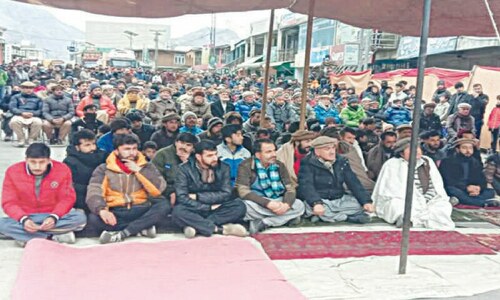ISLAMABAD: Haemophilia management requires prophylactic, routine and emergency treatment in addition to rehabilitation services and facilities.
Despite these challenges, there is reason for hope in the form of promising advances in medical research leading to new treatment medicines and even cures for haemophilia patients.
World Health Organisation (WHO) Global Adviser on Blood Regulation, Availability and Safety Prof Hasan Abbas Zaheer said this in a statement.
He added that while some of the medicines, given to patients, were registered with the Drug Regulatory Authority of Pakistan (Drap) a number of them were not available as new medicines were frequently introduced due to continuous advancements and research in the medical sector.
“Patients in Pakistan pay exorbitant fees for Drap-registered medicines and lack of proper diagnosis for the bleeding disorder patients,” he said, adding that haemophilia affects the body’s ability to form blood clots and remains to be a challenge for both patients and healthcare providers in Pakistan.
“Although treatment options have improved over the years, management of haemophilia still presents many challenges for those living with the condition in developing countries including Pakistan,” he said.
“If someone is diagnosed with haemophilia or another bleeding disorder, it means that the person has a deficiency or absence of some clotting factors in their blood, which can lead to prolonged bleeding spontaneously, after injury or surgery. Fortunately, there are diagnostic tests available to confirm the diagnosis of haemophilia, such as routine and advanced blood and genetic tests. Once a proper diagnosis is established, treatment options are available in the form of medicines registered by Drap which help to control bleeding and prevent complications,” he said.
“In addition, there are also efforts underway in Pakistan to improve the quality of life for haemophilia and other bleeding disorder patients. Patient advocacy groups are working to raise awareness about these bleeding conditions to improve access to care and support services,” he said.
“With proper diagnosis and treatment, people living with haemophilia can lead healthy and fulfilling lives. With continued investment in research and development, and a focus on improving access to care, we can hope to see better outcomes for those living with bleeding disorders,” he said.
Talking to Dawn, Dr Zaheer suggested to Drap to expedite the process of registration of new medicines because patients suffer due to delays in the registration process.
“A number of new medicines are introduced, time to time, in the market but it becomes difficult to bring them in Pakistan, through a legal channel, due to which patients have been suffering,” he said.
Published in Dawn, April 22nd, 2023










































Dear visitor, the comments section is undergoing an overhaul and will return soon.